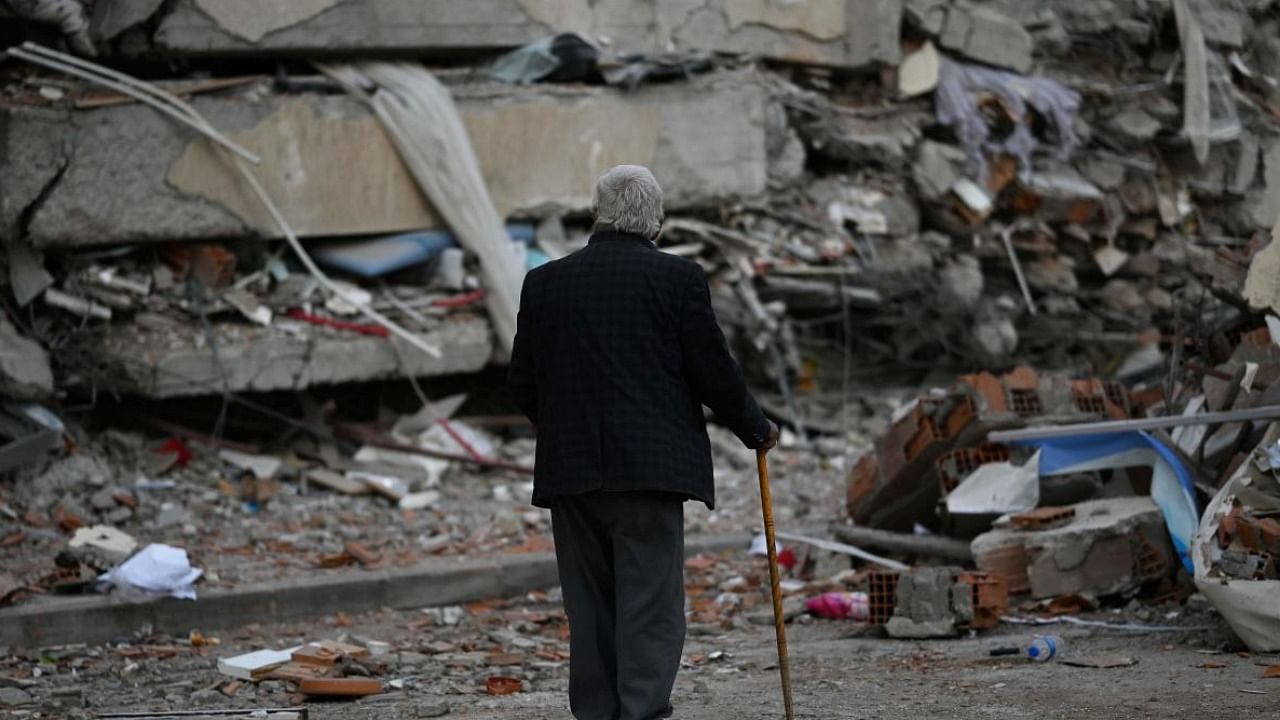
With a death toll standing at more than 50,000, the massive earthquake that struck Turkey and Syria on February 6 and its numerous aftershocks are among the 10 deadliest of the past century.
On July 28, 1976, a quake measuring 7.8, according to the Chinese authorities, (7.5 according to the US Geological Survey), strikes near the industrial city of Tangshan in northeastern Hebei province. The official death toll is given as 242,000 but is believed to be significantly higher.
Western experts put the toll as high as 700,000, which would make it the second deadliest in the history of mankind, after the huge 1556 disaster that struck northern Shaanxi province, with estimates of the toll put at more than 830,000 people.
On December 26, 2004, a massive 9.1-magnitude earthquake strikes off the coast of Sumatra, triggering a tsunami that kills more than 230,000 people throughout the region, including 170,000 in Indonesia alone.
Waves 30 metres (100 feet) high, travelling at 700 kilometres per hour (435 miles per hour), swallow everything in their path.
A magnitude 7 quake on January 12, 2010, devastates the capital Port-au-Prince and the surrounding region.
The quake cuts the country off from the rest of the world for 24 hours, killing more than 200,000 people, leaving 1.5 million homeless and shattering much of Haiti's frail infrastructure.
In October the same year, Haiti is also hit by a cholera epidemic introduced by Nepalese peacekeepers who arrived after the quake. It kills more than 10,000 people.
On September 1, 1923, two minutes before noon, a 7.9-magnitude quake shakes Kanto in Japan. More than 142,000 people die in the earthquake and resulting fire, which destroys Tokyo.
On October 5, 1948, at least 110,000 people are killed in a 7.3-magnitude quake in and around Ashgabat, the capital of Turkmenistan, which at the time was part of the Soviet Union.
More than 87,000 people, including thousands of school pupils, are left dead or missing when a 7.9-magnitude quake strikes China's southwestern Sichuan province on May 12, 2008.
Also Read | Why was the Turkey-Syria earthquake so bad?
The quake causes outrage after it emerges that 7,000 schools were badly damaged, triggering accusations of shoddy construction, corner-cutting and possible corruption, especially as many other buildings nearby held firm.
An earthquake on October 8, 2005, kills more than 73,000 people, most in Pakistan's North-West Frontier Province and the Pakistani-occupied zone of Kashmir. A further 3.5 million are displaced.
On December 25, 1932, a 7.9-magnitude quake kills around 70,000 in Gansu province, in northwest China.
On May 31, 1970, a 7.9-magnitude quake off Peru's north coast leaves some 67,000 dead, many in the mountain city of Huaraz that was buried by a mudslide.
On February 6, 2023, a 7.8-magnitude quake strikes southern Turkey and neighbouring Syria.
The biggest quake in Turkey in nearly a century, which is followed by a 7.5-magnitude tremor, kills more than 50,000, according to a toll revised by AFP on the basis of several sources in late February.
Of the dead, more than 45,000 were in Turkey and around 6,000 in Syria.